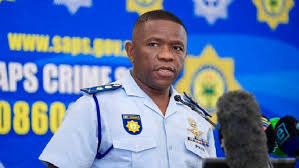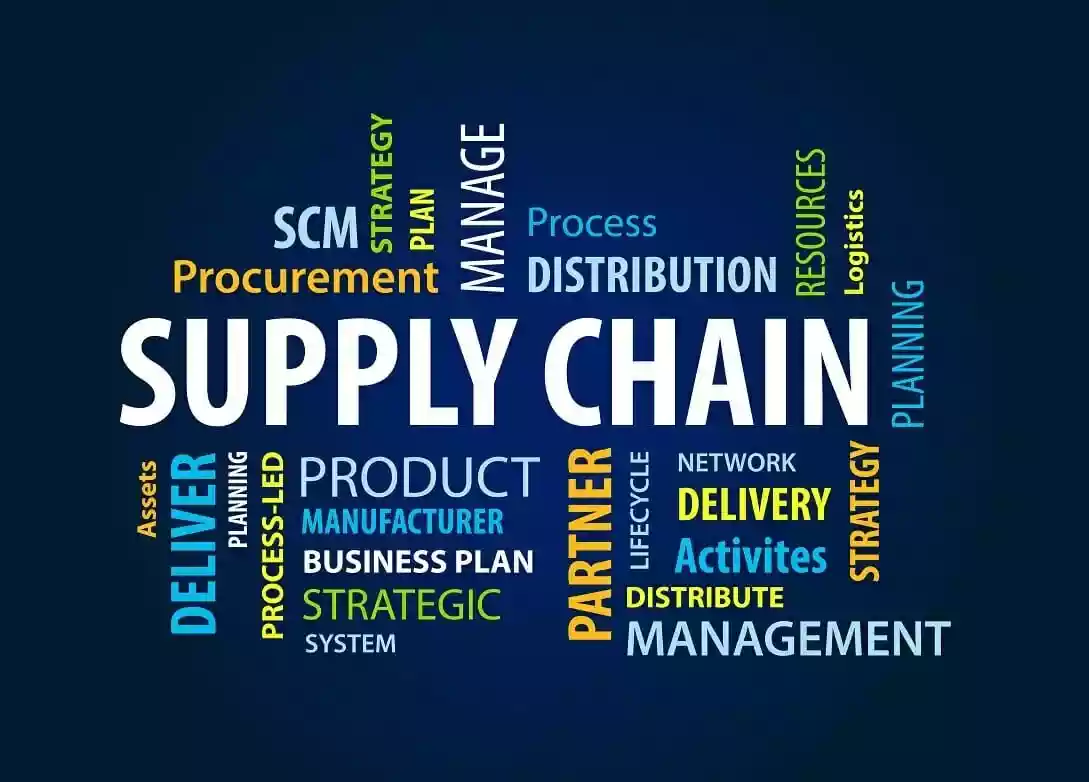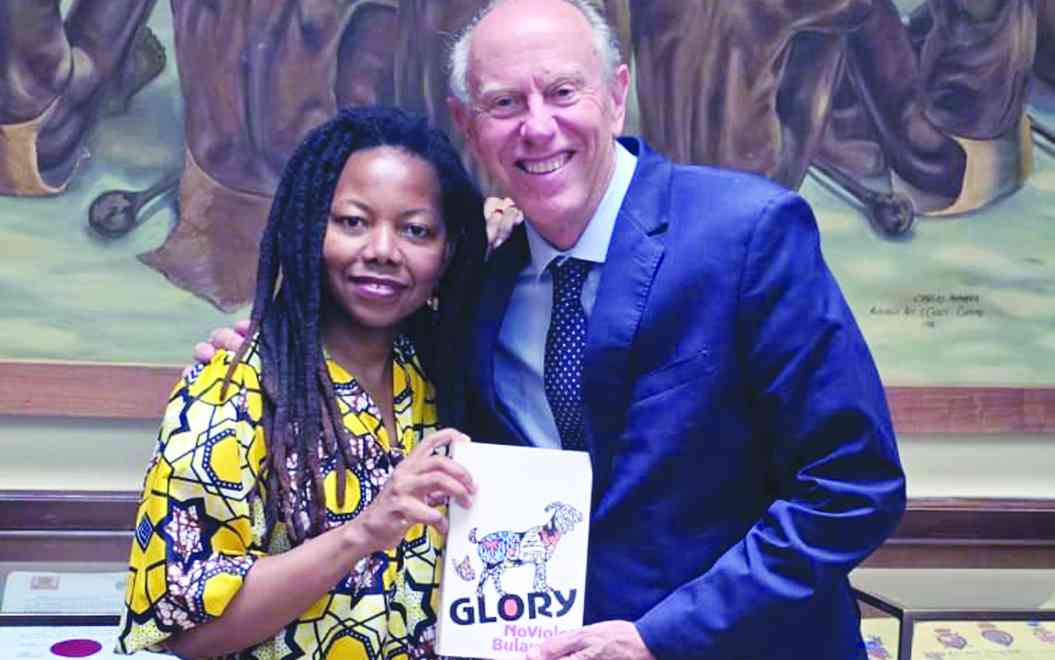
Apartheid. State Capture. Now this.
South Africa is back in the danger zone, where captors’ hands are either already crushing around us or gearing to grab.
We have been here before and what makes this particularly infuriating is that we often only realise in retrospect just how badly we have been manipulated.
Think power cuts, police officers channelling firearms to criminals, and the state’s inability to progressively deal with the most vulnerable around us because of intentional greed and misplaced entitlement.
Recurring capture
This country has obviously not yet recovered from apartheid that ended, on paper, in 1994 — the scars of that regime are there for all to see.
Stratcom was apartheid’s propaganda war against democracy.
In his book Confessions of a Stratcom Hitman, former police officer Paul Erasumus wrote: “We in Stratcom wanted to annihilate … We were trained to permanently neutralise — ideas or people or institutions — on behalf of the government of the day, using unlimited state resources to do so.”
- Zim headed for a political dead heat in 2023
- Record breaker Mpofu revisits difficult upbringing
- Tendo Electronics eyes Africa after TelOne deal
- Record breaker Mpofu revisits difficult upbringing
Keep Reading
Moving along to state capture that coincided with former president Jacob Zuma’s stint in office, from 2009 to 2018:
During that time a representative of the South African Revenue Service, a clear target of captors, referenced something reminiscent of Stratcom: “It has become commonplace for certain individuals with an interest in perverting the course of justice to compile dossiers, files and information which purport to uncover corruption but are in fact a concoction of some fact and much fiction …
“(We now have) significant and credible evidence showing incidents of spying, double agents, dirty tricks, leaking of false allegations and the discrediting of officials.’
The hangover from that state capture era is still severe.
The real state of South Africa
And while prosecutions related to apartheid atrocities, as well as subsequent State Capture crimes, are happening, several remain pending.
We have a backlog in dealing with past capture. Violence, meanwhile, in the form of gang shootings and rival taxi group battles, kidnappings and orchestrated killings, persists.
Innocent children get caught in it.
This is the real state of South Africa. The state of the nation.
This specific aspect has always been known, but the depth of the fragmentation is becoming more apparent by the day, and these elongating fissures threaten to directly and officially connect cops to street-level bloodshed.
On state capture terrain, misinformation — or outright lies — is carefully stitched into truth so that the two merge almost seamlessly.
So, let’s try to unpick what is happening in South Africa:
l On 6 July 2025, KwaZulu-Natal’s police commissioner, Lieutenant-General Nhlanhla Mkhwanazi, held a press conference and made a series of astounding accusations that a drug trafficking cartel had infiltrated the country’s law enforcement, politics and private businesses;
l Those accusations sparked the creation of the Madlanga Commission of Inquiry, as well as a parliamentary ad hoc committee. These parallel hearings began recently and are meant to test the veracity of Mkhwanazi’s accusations; and
l So far, several key individuals have testified in these hearings. Through this it has become apparent that there are alliances in policing.
National Police Commissioner Fannie Masemola and Lieutenant-General Dumisani Khumalo, who headed South Africa’s historically beleaguered Crime Intelligence unit, appear to be on Mkhwanazi’s side — based on their testimony.
On the other side are suspended Deputy National Commissioner of Crime Detection Shadrack Sibiya and sidelined police minister Senzo Mchunu.
They appear, based on their testimony, to be against Mkhwanazi.
Mkhwanazi versus ‘mind games’
Mkhawanzi himself has portrayed himself as a champion of South Africa’s safety — and against Sibiya and Mchunu.
This is because, during his pivotal July press conference, he alleged that Mchunu disbanded a Political Killings Task Team and Sibiya removed critical dockets from it.
Mkhwanazi later asserted that this was done to protect crime suspects under the impression that the task team was investigating them.
Mkhwanazi also alleged there were dodgy individuals operating in the country’s Crime Intelligence unit.
Mchunu told Parliament last week he was no criminal and had disbanded the task team for reasons including the tight police budget and because he wanted to avoid duplicate crimefighting operations.
Sibiya, meanwhile, told MPs: “General Mkhwanazi is playing the country and he’s playing a mind game (with) the country … because he knows how to play with words … in such a way that the country gets moved.”
The Madlanga Commission and Parliament’s ad hoc committee are meant to determine whether Mkhwanazi is “playing a mind game” or if he’s conveying reality.
Either way, someone in this arena is lying, thereby dragging us straight into State Capture turf.
And that someone is clearly one, or several, of South Africa’s highest-ranking police officials.
Drugs
While Mkhwanazi’s accusations are still being tested, some of the themes he referenced are linked to irrefutable reality — what is definitely happening in South Africa.
For example, he said a drug trafficking cartel has infiltrated law enforcement. Trafficking cartels are indeed operating in and through this country — intercepted drug consignments reiterate this fact. Daily Maverick has reported extensively on this for years, predating Mkhwanazi’s accusations.
In some of these narco corners, there are stubborn suspicions of political and police collusion that refuse to disappear.
This ties into the Mkhwanazi allegations of a cartel having infiltrated law enforcement and politics. In that matter, it has been alleged that a cartel known as the Big Five, with international connections, is behind the infiltration.
So far, two of the five have been named — Vusimuzi “Cat” Matlala and Katiso “KT” Molefe.
Matlala faces attempted murder charges and was previously awarded a R360-million contract linked to police health services that has since been terminated.
As for Molefe, he is an accused in a case involving the 2022 murder of Oupa Sefoka, better known as DJ Sumbody, in Gauteng.
Mkhwanazi has suggested that the murder may link to the 2021 theft of R200-million from the Hawks offices in Port Shepstone, KwaZulu-Natal.
Cartel communications, optics
Outside of the Madlanga Commission and the parliamentary ad hoc committee, unofficial questions have been doing the rounds about who the true topmost Big Five cartel traffickers are.
This is a grey area because only Matlala and Molefe have been publicly accused of being part of it.
We do not know yet who the other three suspected key members are.
Global drug cartels generally run slick operations, given the cutthroat operations they carry out. Traffickers do not necessarily use ordinary cellphones and common apps to communicate with each other because this would leave a trail of rather easy-to-obtain information connecting them to narco crimes.
Daily Maverick has reported how crooks worldwide (and apparently some suspects in South Africa) once used devices from a communications encryption company called Anom.
In that case, though, the US Federal Bureau of Investigation had been secretly operating Anom, giving the bureau access to the inner workings of drug cartels.
Criminals have been known to use other tailored encrypted communication platforms to prevent law enforcers from learning what they are up to.
But in the whole Mkhwanazi accusation scandal, it has emerged that evidence in it involves WhatsApp messages.
The messages include ones that were sent to, and from, “Cat” Matlala. This means that Matlala, an alleged Big Five cartel member, was apparently confident enough to use WhatsApp instead of a special encryption service to discuss issues connecting him to alleged dubious dealings.
Matlala, in the run-up to his arrest this year, clearly lived a lavish lifestyle. A News24 article by journalist Jeff Wicks even said that Matlala and his family “lived in the lap of luxury, splurging on mansion rentals, a R9-million Rolls-Royce Wraith, cosmetic surgery and fashion”.
When looking into organised crime, it often emerges that top-tier crooks exercise discretion and tend to hide their wealth.
If Matlala is found guilty of criminality, it would suggest that before his arrest he was confident enough to show his wealth and to communicate with associates via WhatsApp, perhaps because he felt his connections, whoever they may be, would protect him.
That, of course, while feeding into the theory about who the true crooks heading the Big Five may be, is a mere hypothesis.
Past meets present
Back to states of capture.
We do not yet know who is telling the outright truth in the whole Mkhwanazi accusations and counter-accusations scandal. What we do know is that not everyone is telling the truth, and in between all this there are claims of smear campaigns being conducted.
Character assassins and their proxies can now use social media to disseminate whatever disinformation they want, meaning they can employ Stratcom-like strategies on steroids.
South Africa is therefore on exceptionally dangerous ground.
Duplicitous local and international intelligence agents, and all sorts of thugs, thrive in this kind of environment. They sniff out and exploit law enforcement weaknesses.
During the Madlanga Commission and Parliament’s ad hoc committee, crime across the country (that is producing unquantifiable trauma) has been referenced several times.
But more focus is on the deep distrust and accusations of criminality in the police service itself — where the focus has been for decades.
A situation that we now know points to state capture. — Daily Maverick.
Dolley is a South African Journalist and author of four non-fiction books published: Man Alone: Mandela’s Top Cop, Clash of the Cartels, To the Wolves and The Enforcers.











